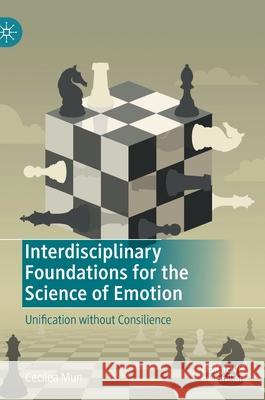Interdisciplinary Foundations for the Science of Emotion: Unification Without Consilience » książka
topmenu
Interdisciplinary Foundations for the Science of Emotion: Unification Without Consilience
ISBN-13: 9783030711931 / Angielski / Twarda / 2021 / 306 str.
Kategorie:
Kategorie BISAC:
Wydawca:
Palgrave MacMillan
Język:
Angielski
ISBN-13:
9783030711931
Rok wydania:
2021
Wydanie:
2021
Ilość stron:
306
Waga:
0.56 kg
Wymiary:
21.01 x 14.81 x 2.06
Oprawa:
Twarda
Wolumenów:
01
Dodatkowe informacje:
Wydanie ilustrowane











